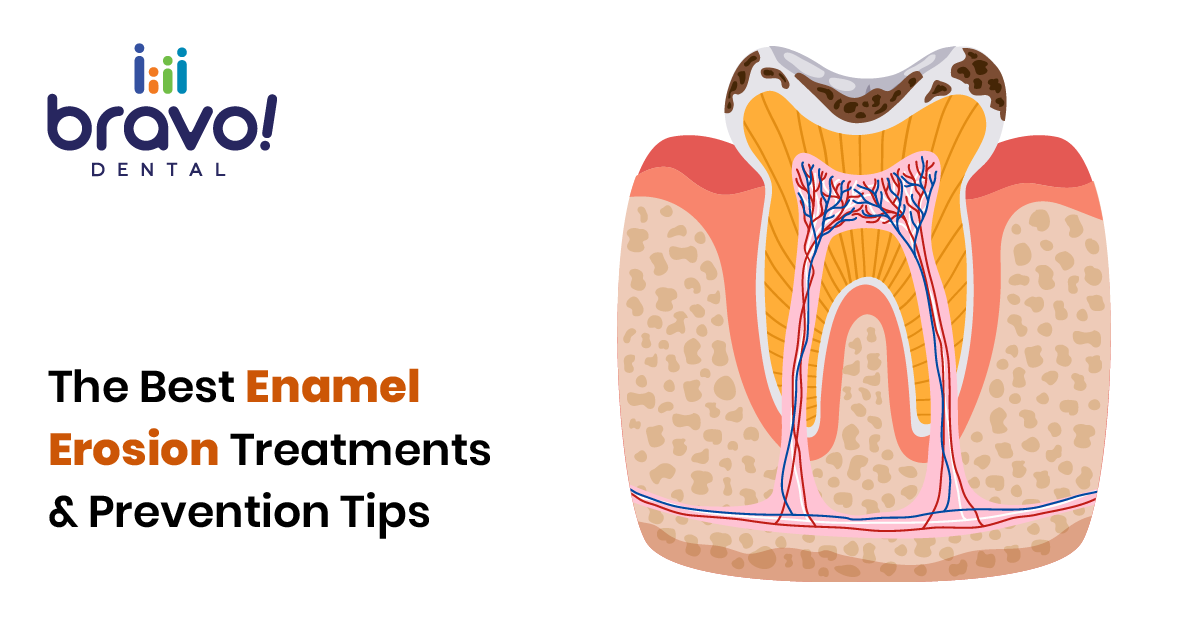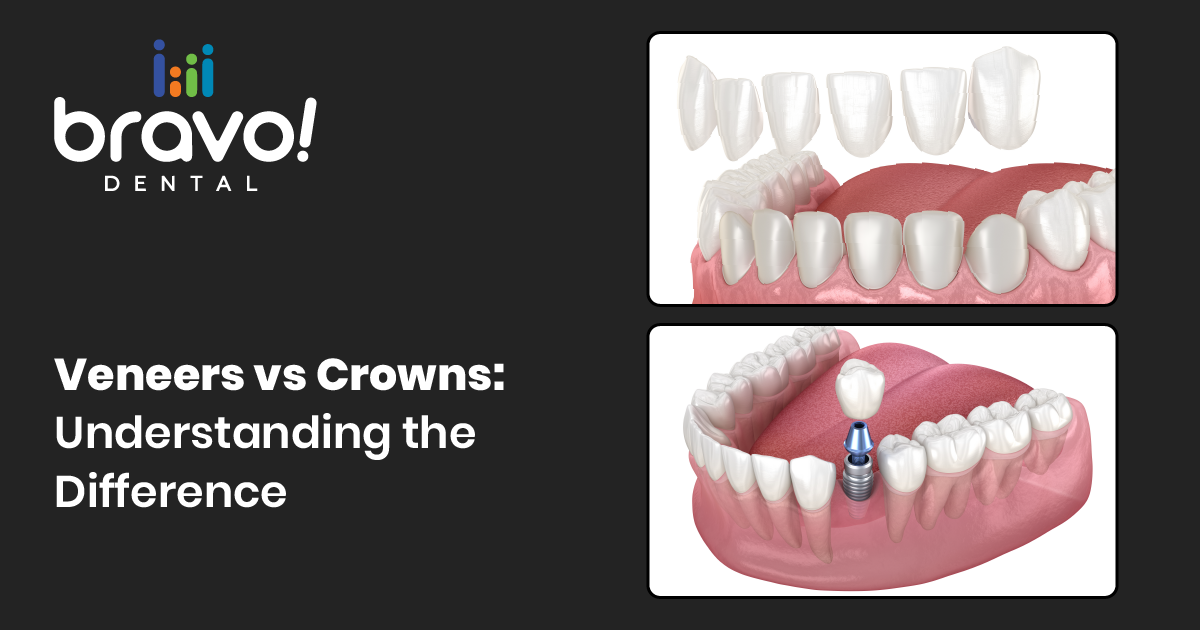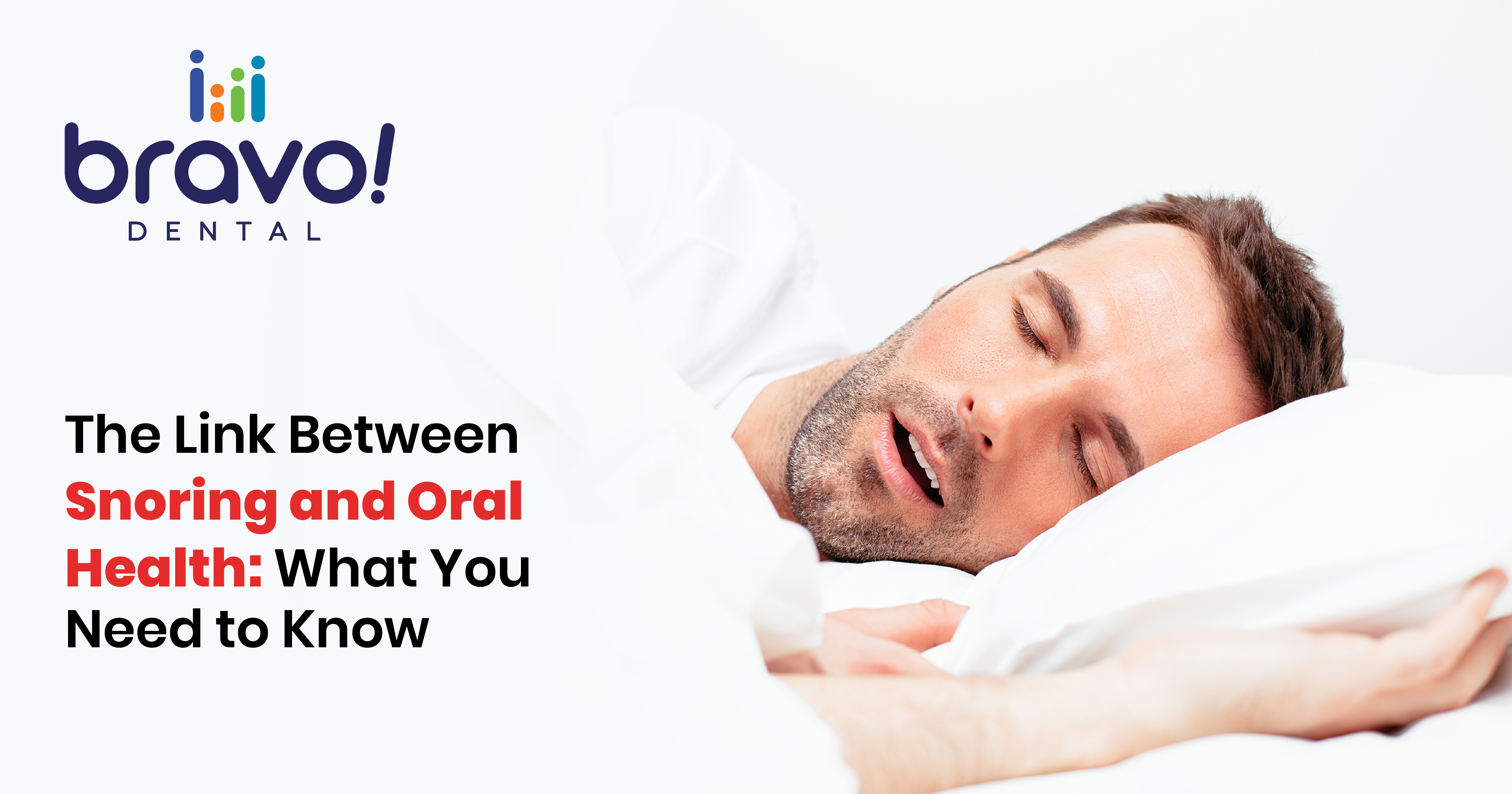
Here’s an interesting fact for you; Enamel is the delicate thin outer layer of the teeth which is also the toughest tissue in the human body. Enamel erosion is a common dental condition in which the teeth’s hard, protective outer layer is gradually worn away. If left untreated, this can lead to sensitivity, discoloration, and even tooth loss.
What is enamel erosion?
Dental erosion is the thinning of the surface of your teeth due to acids intake or acids that come up from your stomach. These acids have the ability to dissolve the hard component that makes up your teeth, resulting in tooth surface loss.
Causes
The main cause of enamel loss is acid. The most common acid secretion comes from the food we eat. Other factors that contribute to acid production in the mouth include:
- Dry mouth.
- Acid indigestion.
- Acidic medications like aspirin or antihistamines.
- Genetics.
- Less saliva production.
- Bruxism or teeth grinding.
We’ve covered the causes and symptoms of tooth erosion in detail in this blog. You will get a detailed understanding of tooth erosion in the blog but if you’re more interested in the treatments & tips, read further.
But the good news is that many treatments are available for enamel erosion, depending on the severity of the condition and the underlying cause.
Treatments
The first line of defense against enamel erosion is preventive care: This includes good oral hygiene practices such as brushing and flossing, as well as limiting the consumption of foods and beverages that are high in acid content. These include citrus fruits, sports drinks, and carbonated beverages. If you habitually consume any of these acidic substances often, it is recommended to use a straw, so the acid does not come in contact with your teeth directly.
Fluoride: Fluoride is a naturally occurring mineral that can help to strengthen and re-mineralize the tooth enamel, making it more resistant to erosion. Fluoride can be found in toothpaste, mouthwashes, and professional fluoride treatments and can be prescribed by a dentist as a supplement.
Dental Sealants: Dental sealants may be necessary for moderate to severe cases of enamel erosion. These thin, plastic coatings are applied to the surface of the teeth to protect them from further erosion. Sealants can be applied to both adult and children’s teeth and can last up to 5-10 years before they need to be reapplied.
Dental Restorations: These include fillings, crowns, and inlays. These are used to restore teeth that have been significantly damaged by erosion. For example, a filling can be used to repair a small cavity caused by erosion, while a crown can be used to cover a tooth that has been severely worn down.
Preventive Tips:
In some cases, correcting any underlying conditions contributing to the erosion may be necessary. For example, if acid reflux is causing the erosion, medication or lifestyle changes may be necessary to manage the condition, such as;
- Keeping away from acidic foods and beverages.
- Brushing softly using a toothbrush that has soft bristles.
- Brushing your teeth at least 30 minutes after consuming acidic foods and beverages (teeth will be softened)
- Rinsing with water after consuming acidic meals and beverages.
- Using fluoride-containing toothpaste.
- Drinking milk or cheese after meals will neutralize acidity.
It is important to note that the best treatment for enamel erosion is prevention. Maintaining good oral hygiene habits and visiting your dentist regularly can prevent enamel erosion from occurring or at least slow down the progression of the condition, thus preserving your tooth’s health for a longer period. If you are looking for expert advice to protect your enamel or ways to restore what you’ve lost, we can help! Drop by Bravo! Dental and restore back your enamel and happy smiles.
happy to hear from you, contact us
Fill out the contact form below and Feel free to send any question or query.




